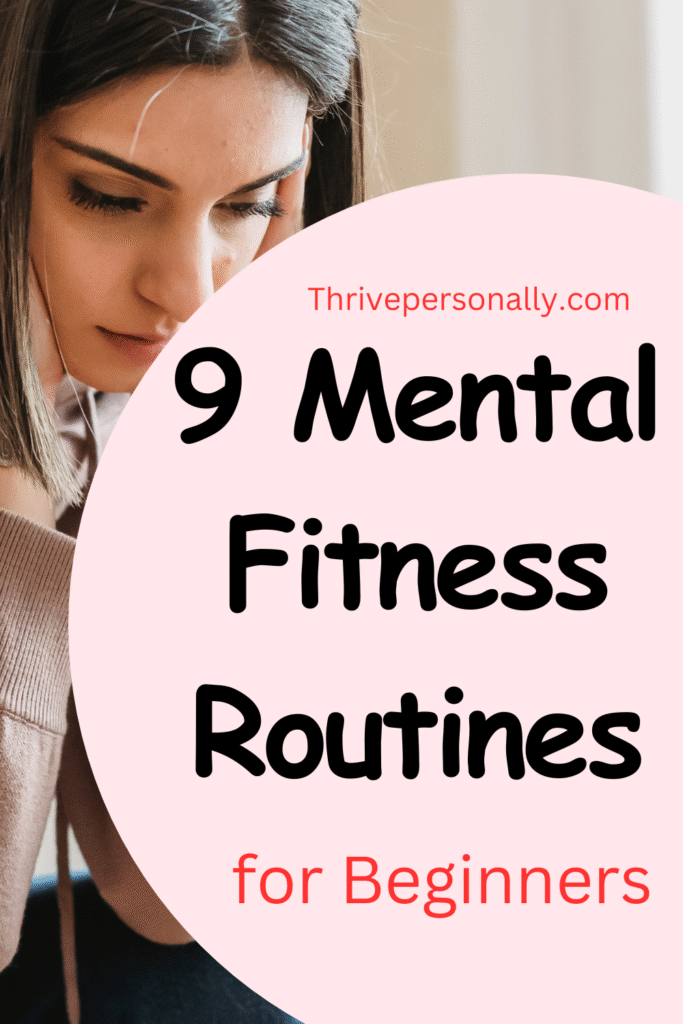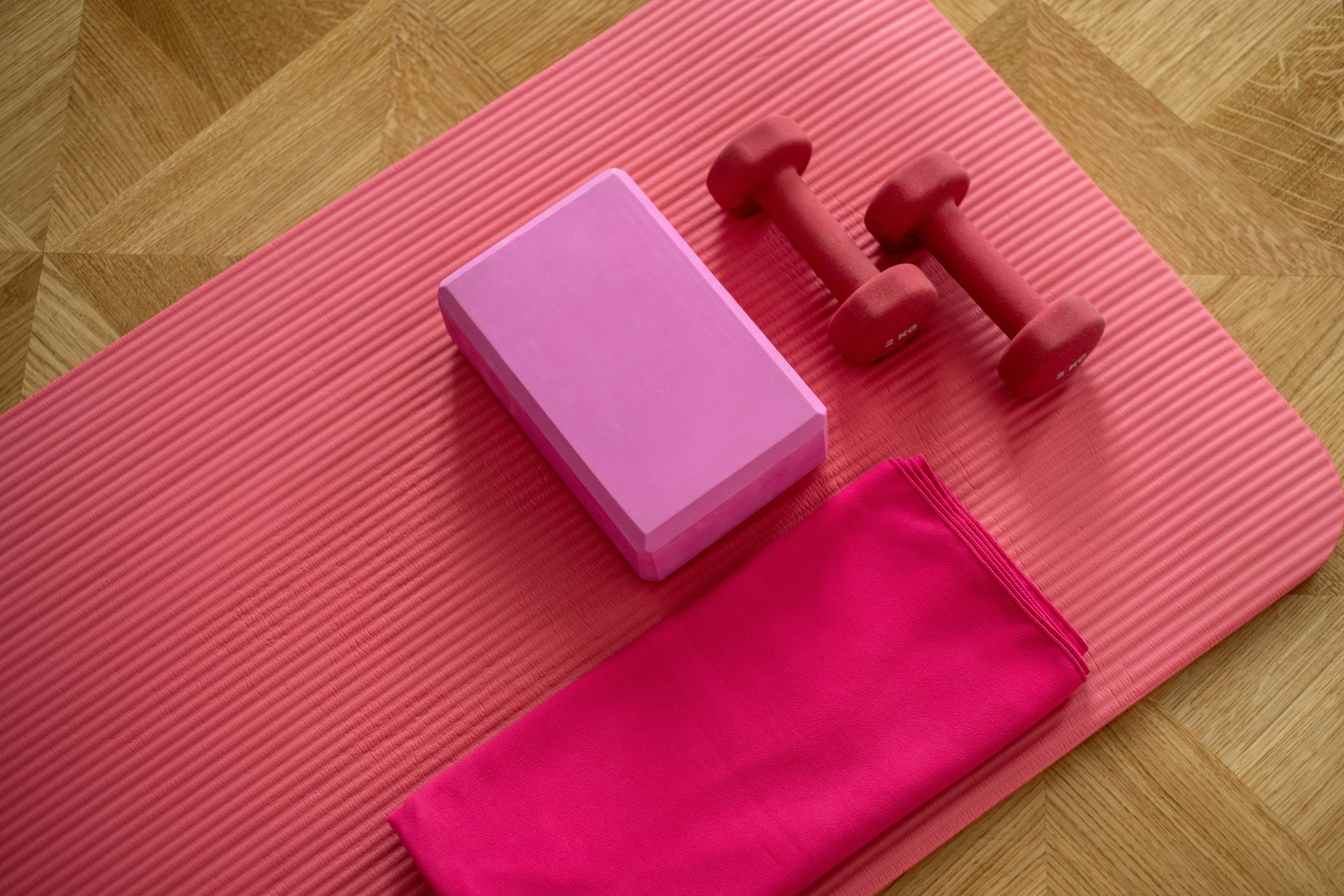Having a healthy body is valuable—but having a healthy mind is vital too. Mental fitness is the act of keeping your thoughts, emotions, and focus strong and balanced. It’s not just about fixing your mind when things go wrong, but training your brain to be calm and clear before life gets hard.
Just like working out your muscles makes your body stronger, training your brain can make it sharper, calmer, and more stable. When you’re mentally fit, you can think clearly, make better choices, and handle pressure with ease. Stress doesn’t push you around. You feel more confident and in control of your life.
Don’t worry if this concept is new to you. You don’t need a degree in psychology or a lot of free time. All you need is a little commitment. These 9 beginner-friendly mental fitness habits are easy to follow and can help you build a peaceful and powerful mind.
1. Learn to Practice Deep Breathing Daily

One of the simplest tools you already have for calming your mind is your breath.
When you’re stressed, your breathing gets shallow and your heart races. Your body shifts into survival mode. But when you slow down and breathe deeply, your brain receives a message: “Everything is okay.”
Take a few minutes each day to focus on your breathing.
Breathe in slowly through your nose, count to a few seconds, then breathe out through your mouth. Repeat this 3 to 5 times.
This daily habit trains your body to relax through stress instead of reacting in fear. Over time, deep breathing improves focus, mood, and sleep.
Read also: 66 Embracing Imperfection Quotes to Inspire You
2. Write Down What You Think
Writing things down helps you understand what’s going on in your mind. Keeping everything bottled up can make your thoughts feel heavier. But when you write them down, they often become easier to manage.
Spend just 5–10 minutes a day journaling.
You don’t have to write well—this isn’t for anyone else to read. Just let your thoughts flow freely. Write about how you feel, what you’re thinking, or what you’re grateful for.
Journaling reduces stress, brings clarity, and reveals patterns in your emotions and thoughts. It helps you let go of what’s bothering you—without having to say a word.
Read also: How to Write a Gratitude Journal
3. Move to Free Your Mind
You don’t need a gym membership to use movement as a tool for mental fitness.
Simple actions—like walking, stretching, or dancing—can help release stress and bring a sense of calm.
When you move, your body releases feel-good chemicals. You shift your attention from your thoughts to your body. That gives your mind a rest.
Try to get at least 15 minutes of movement each day.
Go for a walk outside. Do yoga at home. Stretch your body during the day. Movement helps you feel grounded and clears the mental fog.
Read also: How to Stop Overthinking at Night – 15 Guidelines
4. Establish a Mindful Practice
Mindfulness means paying attention to the present moment—without judging or trying to change anything.
Most people live in the past or worry about the future. That’s where stress grows. Mindfulness brings you back to now.
You can be mindful while eating, walking, or washing dishes.
Focus on what you’re doing. Notice how your body feels. Listen to the sounds around you. And when thoughts come, simply notice them and let them go.
The more you train yourself to stay in the moment, the less overwhelmed you feel. You stop reacting emotionally and start responding calmly.
5. Speak Positively to Yourself
Many people have a harsh inner voice.
They criticize every small mistake or speak to themselves in a way they’d never speak to someone they love. That voice becomes part of how they see themselves.
But your brain believes what you repeat.
Positive self-talk builds mental strength.
It’s not about lying to yourself. It’s about speaking truth with kindness. For example, instead of thinking “I’m stupid,” you can say, “I made a mistake, but I’m learning.”
Talk to yourself like you would talk to a close friend.
Over time, this helps build confidence and makes your mind a safer, more supportive place.
6. Minimize Your Exposure to Unhealthy Influences
What you allow into your mind affects your emotional health.
That includes what you watch, read, and listen to. If your day is filled with arguments, negativity, or gossip, your mind will reflect that energy.
You can’t control everything, but you can control what you focus on.
Take breaks from social media or news if they make you anxious. Notice who drains your energy and who lifts you up. Set limits around people or content that disturb your peace.
Protecting your mind is not selfish—it’s healthy.
Peace begins with what you allow into your thoughts.
7. Challenge Negative Thoughts
Thousands of thoughts run through your head every day—but not all of them are true.
Some are shaped by fear, old wounds, or what others have said to you. If you don’t question these thoughts, they will control your feelings and actions.
Mental strength comes from asking:
“Is this thought helpful?”
“Is it true?”
“Can I see this another way?”
This isn’t about fake positivity. It’s about fair, balanced thinking.
Over time, you learn not to believe every harsh thought. You start choosing thoughts that build you up, not tear you down.
8. Create a Simple Nighttime Wind-Down
How you end your day shapes how you feel the next morning.
If your nights are filled with noise, screens, or worry, your mind stays alert.
Instead, create a calm bedtime routine.
Do something relaxing—read a book, stretch, listen to soft music, or write in your journal. Turn off screens at least 30 minutes before bed. Let your mind slow down.
This gives your brain space to let go of the day and prepare for rest. Sleep is when your mind repairs itself. A quiet evening leads to a stronger, more focused morning.
9. Use Gratitude Every Day
Gratitude is one of the easiest and most powerful ways to build a calm and strong mind.
It’s easy to focus on what’s missing or what’s wrong. But when you train your brain to notice the good, it changes how you feel.
Each day, write down three things you’re grateful for.
They can be big or small. The more you practice, the more your mind learns to spot the positive. Gratitude shifts your focus to what you do have—not what you lack.
Even on hard days, there’s always something to be thankful for. Gratitude doesn’t erase problems—it helps you face them with strength.
Final Thoughts
You care for your body—your mind deserves the same care.
By practicing these small habits daily, you start to feel calmer, more focused, and more grounded. You become less reactive and more thoughtful. You’re less stressed and more centered.
These 9 exercises don’t require money or hours of free time.
They only ask for consistency and attention. Even 5 or 10 minutes a day can start shifting your thoughts in a better direction.
Mental fitness isn’t about being perfect.
It’s about becoming more aware, more stable, and more connected to who you really are.
Start today.
Pick one habit. Try it for a week. Then slowly add another.
The more you practice, the stronger your mind becomes—and the happier your life will be.
Save the pin for later



